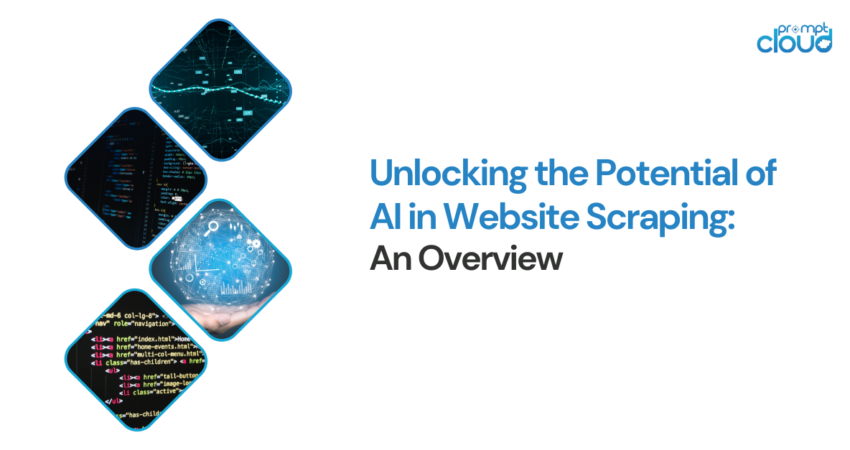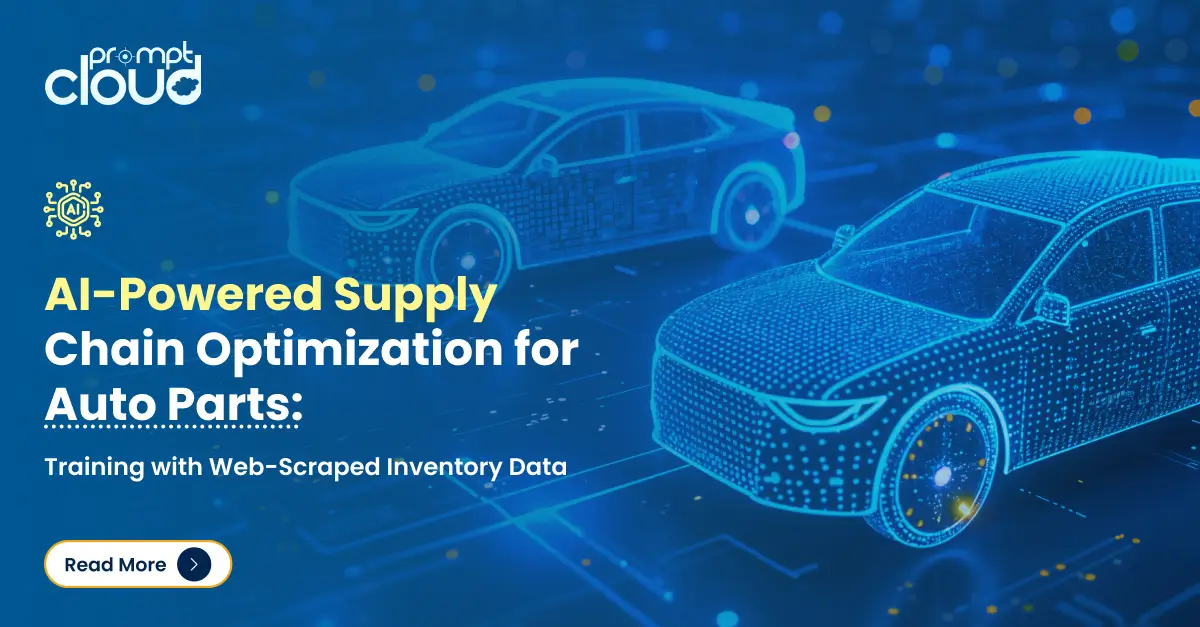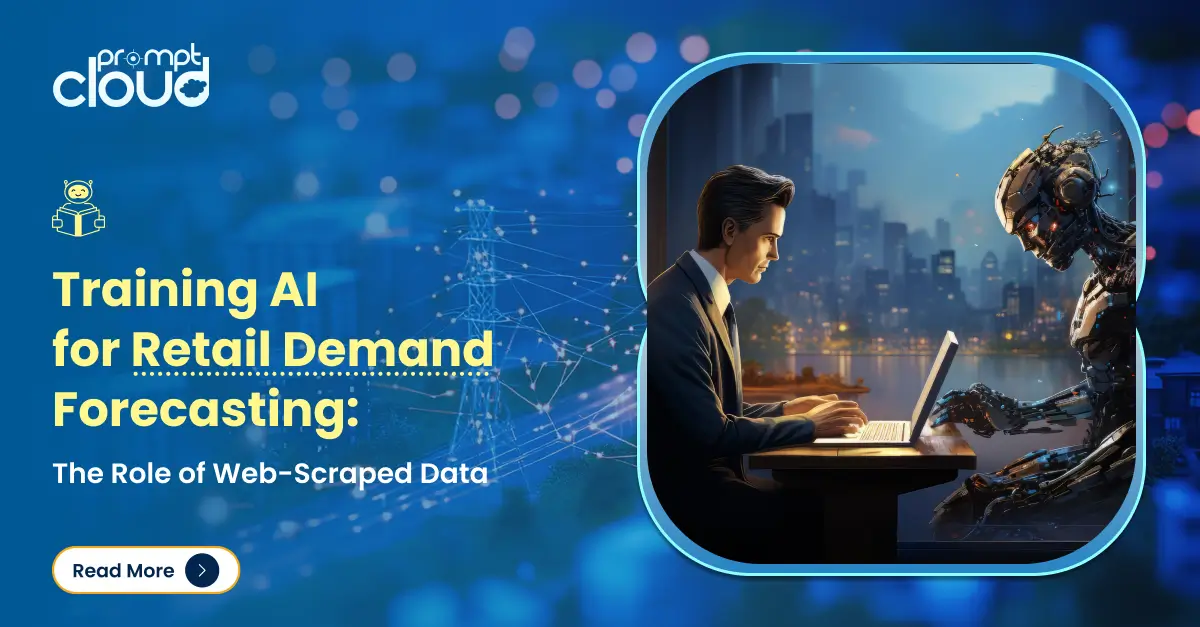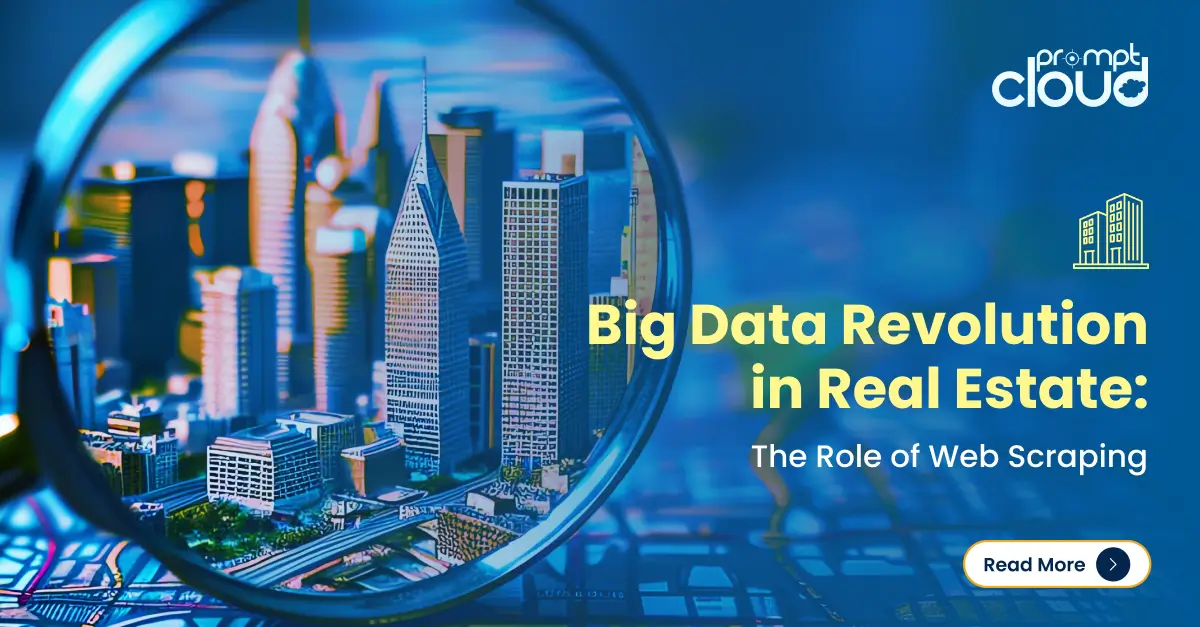
Web scraping today, has transitioned from a niche programming activity to an essential business tool. Initially, scraping was a manual process, with individuals copying data from web pages. The evolution of technology introduced automated scripts that could extract data more efficiently, though crudely.
As websites grew more advanced, scraping techniques also advanced, adapting to intricate structures and resisting anti-scraping measures. The progress in AI and machine learning has propelled web scraping into uncharted territories, enabling contextual comprehension and adaptable approaches that emulate human browsing behaviors. This continuous progression shapes how organizations harness web data at scale and with unprecedented sophistication.
The Emergence of AI in Web Scraping
Image Source: https://www.scrapehero.com/
The impact of Artificial Intelligence (AI) on web scraping cannot be overstated; it has absolutely changed the landscape, making the process more efficient. Gone are the days of laborious manual configurations and constant vigilance to adapt to shifting website structures.
Now, thanks to AI, web scrapers have evolved into intuitive tools capable of learning from patterns and autonomously adjusting to structural changes without constant human oversight. This means they can grasp the context of data, discerning what’s relevant with remarkable accuracy, and leaving behind what’s extraneous.
This more intelligent and flexible method has transformed the process of extracting data, providing industries with the tools to make better-informed decisions grounded in top-notch data quality. As AI technology advances, its incorporation into web scraping tools is poised to establish fresh standards, fundamentally altering the core of how we gather information from the web.
Ethical and Legal Considerations in Modern Web Scraping
As web scraping evolves with AI advancements, ethical and legal implications become more complex. Web scrapers must navigate:
- Data Privacy Laws: Scraper developers should understand legislation like GDPR and CCPA to avoid legal violations involving personal data.
- Terms of Service Compliance: Respecting a website’s terms of service is crucial; scraping contrary to these can lead to litigation or access denial.
- Copyrighted Material: Content obtained must not infringe on copyrights, raising concerns over the distribution and use of scraped data.
- Robots Exclusion Standard: Adhering to the robots.txt file of websites indicates ethical conduct by honoring the site owner’s scraping preferences.
- User Consent: When personal data is involved, ensuring that user consent has been obtained preserves ethical integrity.
- Transparency: Clear communication regarding the intent and scope of scraping operations fosters an environment of trust and accountability.
Image Source: https://scrape-it.cloud/
Navigating these considerations requires vigilance and a commitment to ethical practices.
Advancements in AI Algorithms for Enhanced Data Extraction
Lately, we’ve observed a notable evolution in AI algorithms, significantly reshaping the landscape of data extraction capabilities. Advanced Machine Learning models, demonstrating an improved ability to decipher intricate patterns, have elevated the precision of data extraction to unprecedented levels.
The advancements in Natural Language Processing (NLP) have deepened contextual understanding, not only facilitating the extraction of relevant information but also enabling the interpretation of subtle semantic nuances and sentiments.
The emergence of neural networks, particularly Convolutional Neural Networks (CNNs), has sparked a revolution in extracting image data. This breakthrough empowers artificial intelligence not only to recognize but also to classify visual content sourced from the vast expanse of the internet.
Moreover, Reinforcement Learning (RL) has introduced a new paradigm, where AI tools refine optimal scraping strategies over time, thereby enhancing their operational efficiency. Integration of these algorithms into web scraping tools has resulted in:
- Sophisticated data interpretation and analysis
- Improved adaptability to diverse web structures
- Reduced need for human intervention for complex tasks
- Enhanced efficiency in handling large-scale data extraction
Overcoming Obstacles: CAPTCHAs, Dynamic Content, and Data Quality
Web scraping technology must navigate several hurdles:
- CAPTCHAs: AI website scrapers are now employing advanced image recognition and machine learning algorithms to solve CAPTCHAs with higher accuracy, enabling access without human intervention.
- Dynamic Content: AI website scrapers are designed to interpret JavaScript and AJAX that generate dynamic content, ensuring that data is captured from web applications just as effectively as from static pages.
Image Source: PromptCloud
- Data Quality: The introduction of AI has brought improvements in identifying and classifying data. This is to make sure that the information collected is relevant and of high quality, reducing the need for manual cleaning and verification. AI website scrapers continually learn to distinguish between noise and valuable data, refining their data extraction process.
Fusion of AI with Big Data Analytics in Web Scraping
The integration of Artificial Intelligence (AI) with Big Data analytics represents a transformative leap forward in web scraping. In this integration:
- AI algorithms are deployed to interpret and analyze vast datasets harnessed through scraping, achieving insights at unprecedented speeds.
- Machine learning elements within AI can further enhance data extraction, learning to identify and extrapolate patterns and information efficiently.
- Big Data analytics can then process this information, providing businesses with actionable intelligence.
- Additionally, AI assists in cleansing and structuring data, a crucial step for leveraging Big Data analytics effectively.
- This synergy between AI and Big Data Analytics in web scraping is crucial for time-sensitive decision-making and maintaining competitive advantages.
The Future Landscape: Predictions and Potential for AI Website Scrapers
The realm of AI website scraping stands at a significant threshold of transformation. Predictions point to:
- Enhanced cognitive capabilities, allowing scrapers to interpret complex data with human-like understanding.
- Integration with other AI technologies like natural language processing for more nuanced data extraction.
- Self-learning scrapers that refine their methods based on success rates, creating more efficient data harvesting protocols.
- Greater adherence to ethical and legal standards through advanced compliance algorithms.
- Collaboration between AI scrapers and blockchain technologies for secure and transparent data transactions.
Contact us today at sales@promptcloud.com to discover how our cutting-edge AI website scraper technology can revolutionize your data extraction processes and propel your organization to new heights!



















































